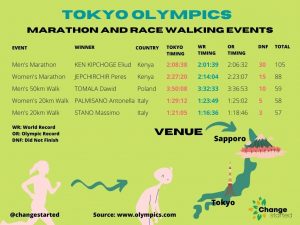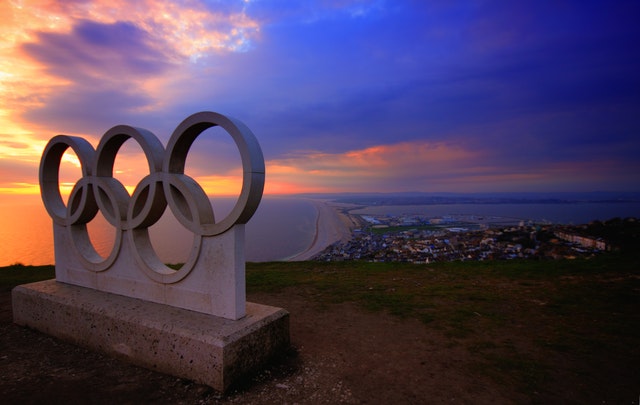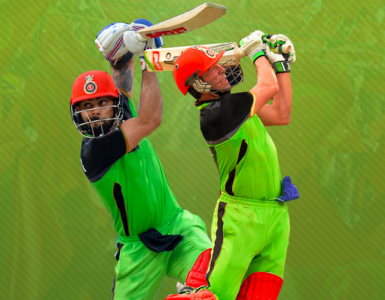“I can finish the match but I can die. If I die will the ITF take responsibility?”
This statement was made by Tennis player Daniil Medvedev during his third-round match at Tokyo Olympics. The Russian tennis star called a medical timeout numerous times and even asked officials who would be responsible if he died on the court. ITF is International Tennis Federation.
The second-seeded player won that match and progressed to the quarterfinals, which he eventually lost. After the exit from Tokyo Olympics, this is what he had to say.
“I am always trying to do my best. I couldn’t play better than what I did today. I could serve better, but then I was wet like hell. I couldn’t toss the ball well, once I tossed the ball and got water in my eyes. I changed everything I had (clothes). I wanted to change my skin because I was sweating like I never did before. It was terrible.”
https://twitter.com/DaniilMedwed/status/1420306048758554629
This is not the only incident that occurred during Olympics, several athletes had to battle the heat and humidity of Tokyo. Kazakhstan’s Zarina Diyas retired from his match and Spain’s Paula Badosa was taken off the court in a wheelchair due to heat and exhaustion. At the request of the number one-seeded and Tennis legend, Novak Djokovic the tennis matches were moved to the evening session.
With temperatures averaging 32.2C during the Tokyo Olympics, these Games turned out to be one of the hottest and most humid on record.
On the first day of the Archery competition, Russian archer Svetlana Gomboeva fainted due to the heat. She had to be taken out of the arena on a stretcher and later got medical attention.
In beach volleyball during the practice session players could not bear standing on the hot sand, and support staff had to spray the surface with water before they could continue.
The hockey stadium had a facility for mist sprays in the players’ shelter areas to keep them cool. The men’s tournament saw massive 6150 player substitutions over the course of 38 matches. As per the TV commentator, it was done to keep the players fresh and play them on rotation.
How did Climate Change impacted the Marathon and Running events?
The impact of climate on one of the toughest endurance sport was not something that the organizing committee was not aware of.
Unlike other sports, long-distance running does not allow breaks and rest. When athletes start to run they just keep running until they finish. Hence it is particularly important that weather does not hamper a runner’s performance.
In 2019, they had decided to move the long-distance events like marathons and race walking from Tokyo to Sapporo, which is 1070 kilometers away from Japan’s capital.
This was done to mitigate the impact of the rising temperatures on athlete’s performance as Sapporo weather is cooler than Tokyo.
Did it help?
In the Women’s marathon, which was held on the penultimate day of the Olympics, saw world champion Ruth Chepngetich, of Kenya, a favorite for gold, failed to complete the event. The event which was supposed to start at 7 am local time were moved to 6 am, however by the end of the race temperatures had spiked to 30 degrees Celsius. 15 athletes were unable to finish the race.
In the men’s category which is the final event of the Tokyo 2020 Olympics athletic competition, 30 of the 105 starters did not cross the finish line.
An Instagram post by a New Zealand runner Zane Robertson mentioned “Somehow I got to the finish line running on fumes even though I don’t remember anything or finishing. After finishing I woke up in the medical tent in a ice bath with a thermometer up my ass. Massive respect to all those that competed in such conditions today. 🚨💀🌡Thank you Japan for putting on the hardest race I’ve ever run.”
Similar was the case in race walking events, 10 male athletes out of 59 were not able to complete the 50km Walk. The Gold medalist Dawid Tomala from Poland completed the race in 3 hours 50 mins and 8 seconds which was well below the world record timing of 3 hours 32 mins 33 seconds.
It was not just the heat that took a heavy toll on the athletes, the humidity was more excruciating. None of the marathon or race walking events were able to produce any World Records and also far away from the Olympic records, similar to Rio Olympics.

Overall three world records and 10 Olympic records fell in athletics events at Tokyo. London Olympics had the world record created in the Women’s marathon while Beijing Olympics created Olympics record in the Men’s marathon, Men’s 50-kilometer walk, and Women’s 20km walk.
An argument can be made that records were not made because many of the athletes went underprepared due to the pandemic.
In addition, the Games were held with hardly any spectators, with only very few people cheering on athletes for the long-distance running events. Claps, whistles, and encouragement can play a huge role in an athlete’s performance. Hence near-empty venues could have played a part, but the energy-sapping weather conditions during the games cannot be ignored.
Wrapping Up
When Tokyo last hosted the games in 1964, the tournament was moved to October to combat the heat but this time that was not considered.
Athletics, beach volleyball, cycling, football, hockey, marathon swimming, modern pentathlon, rowing, rugby, tennis, and triathlon are high endurance sports and are held in the outdoor surroundings.
It is pertinent that organizing committees and sports bodies take a close look at the location of the sports venue, the timing, and the prevailing weather conditions before deciding to schedule the games.
It is not just about climate change impacting Tokyo Olympics, the weather plays a critical factor in athletes’ performance for any sporting event. Human-caused climate change is driving up temperatures across the planet and athletes not only have to bear the heat of the competition but have to tackle the miseries of weather.
The sports fraternity and all the sports-loving people should take a serious look at the havoc we have caused to our climate. If we want to keep enjoying our Olympics and sports in general, we need to work towards it.
Looking at performances, people being carried on stretchers, and athletes’ own personal experiences, we can conclude that weather and climate change impacted Tokyo Olympics on many levels. It will possibly impact many more Olympics if we do not take action.
There were few unprecedented steps taken in Tokyo to make Olympics more sustainable, you can read it here or watch this video.






Add comment